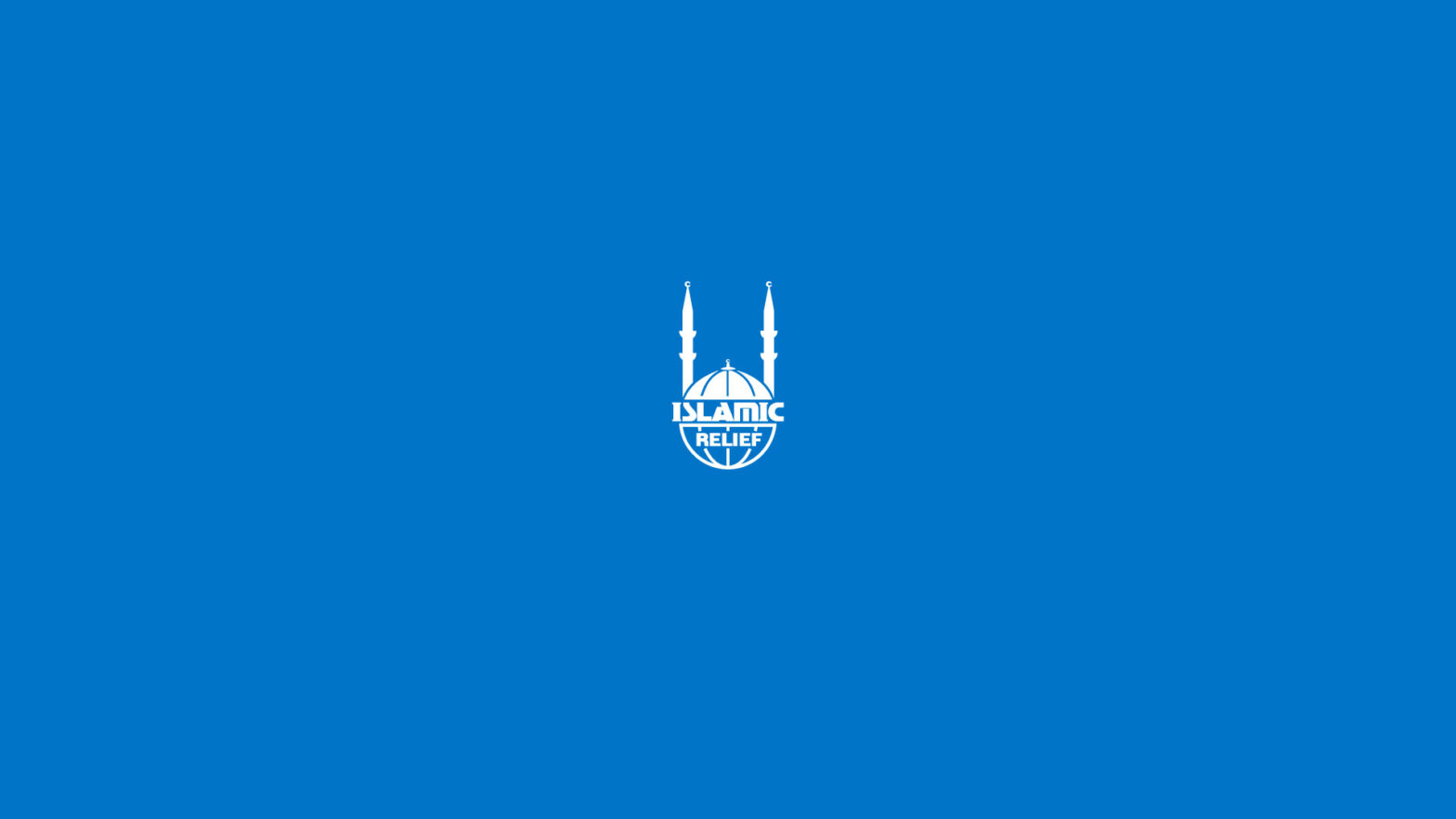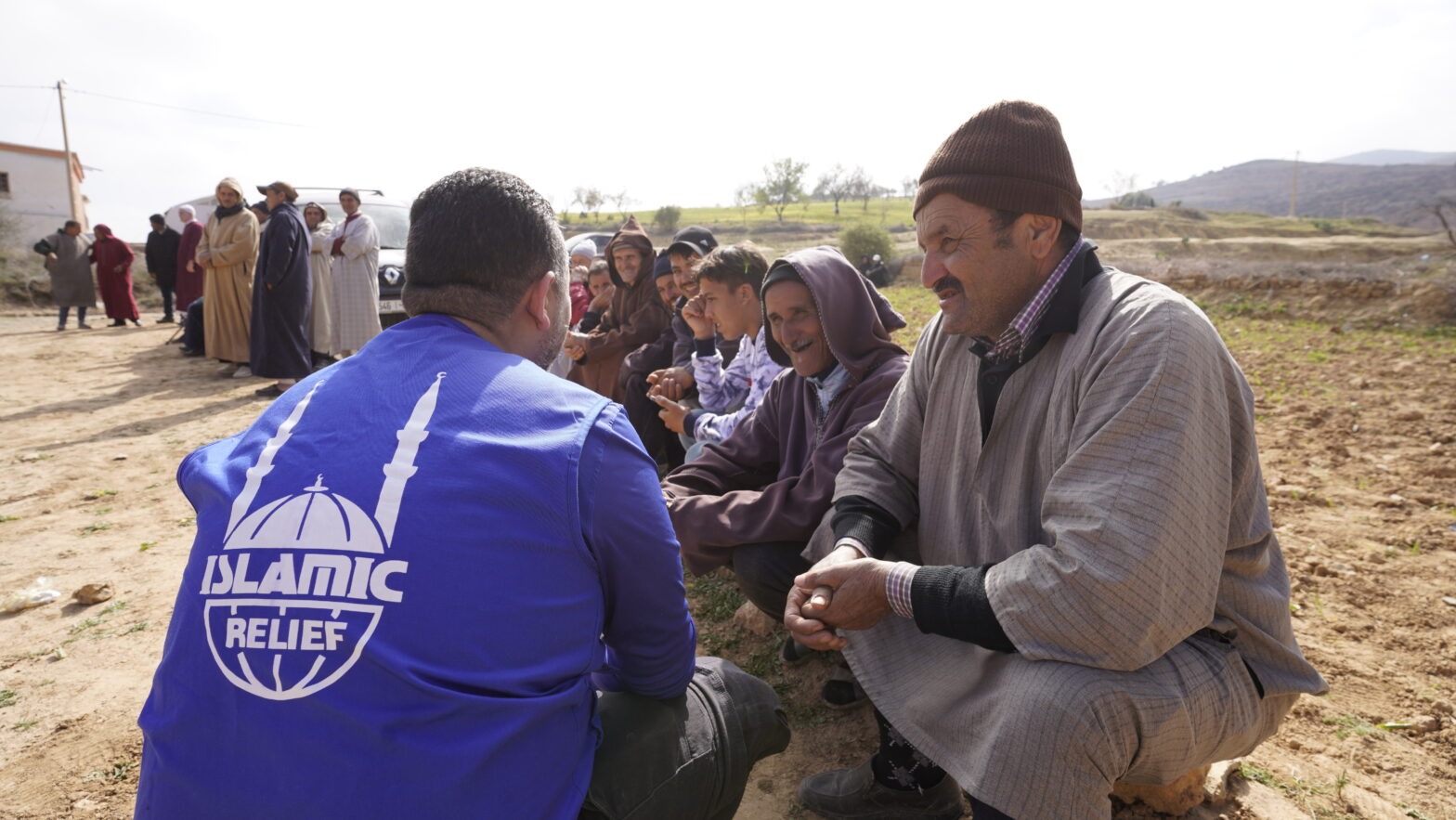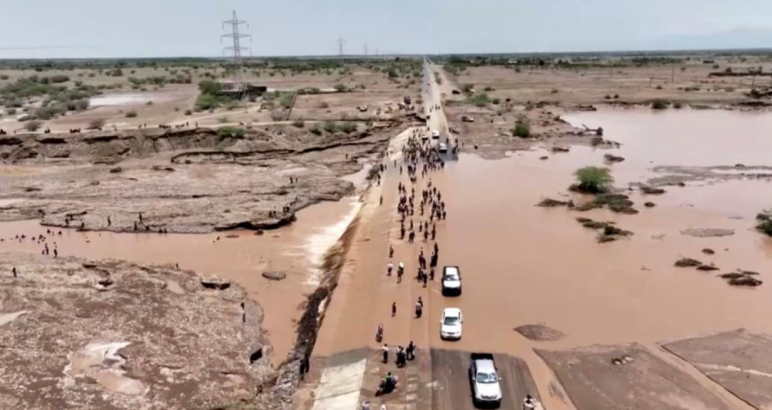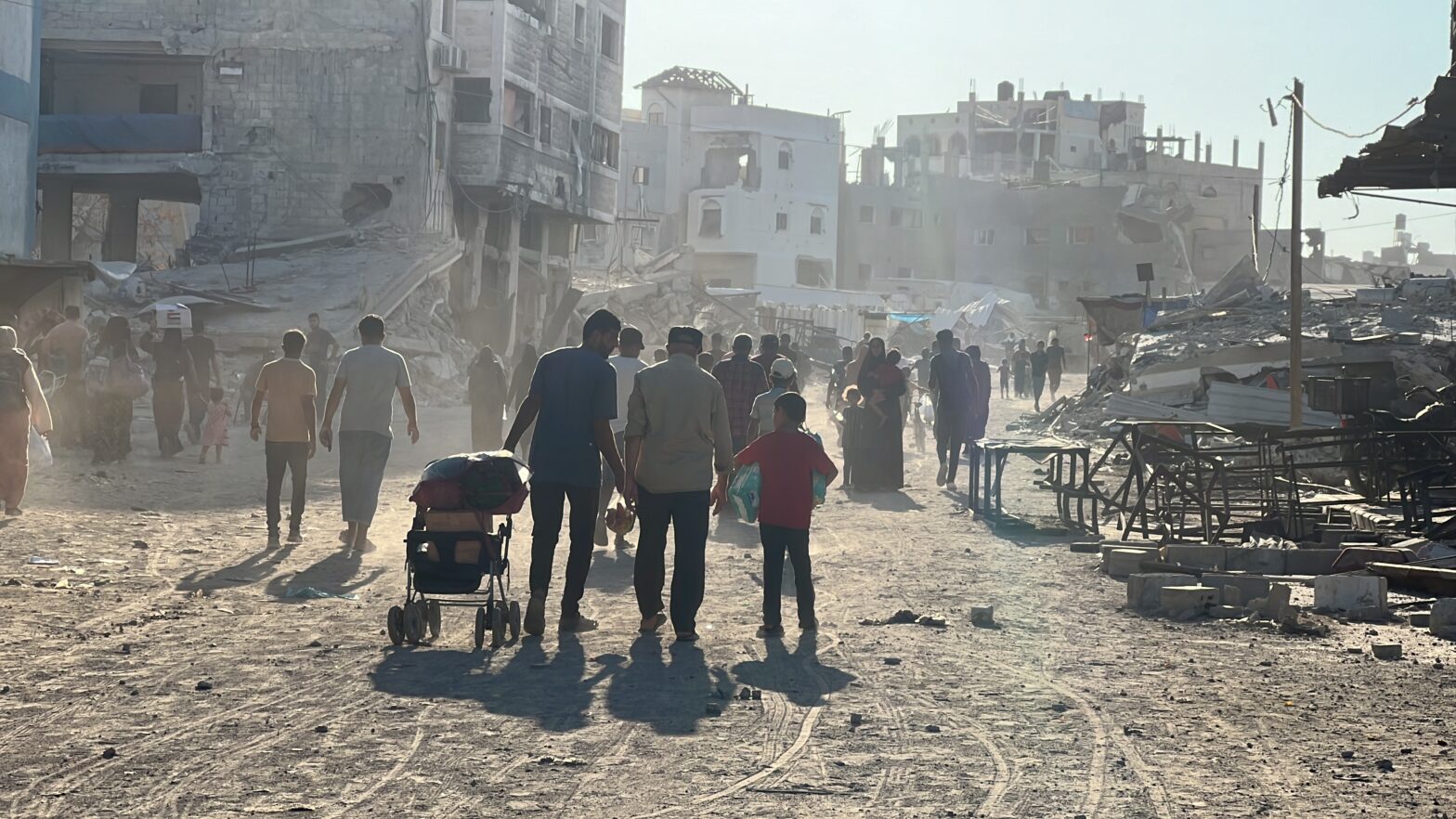Urgent international action needed as Lebanon faces worst humanitarian crises in decades







As Palestinians mark 300 ‘nightmare’ days since the escalation began in Gaza, an Islamic Relief aid worker* describes fear, trauma, and fading hope.
300 days of this nightmare. Can you imagine the feeling of being trapped in a horrifying dream, even for a couple of minutes? We Palestinians in Gaza have been feeling like that for the last 300 days.
We have spent our days and nights feeling like death is just around the corner. I have been feeling like an airstrike will bury me under the rubble. I have been feeling like my family will be wiped out and our house will be destroyed. I have been traumatized, crippled by fear, and distraught for 300 terrible days. I can’t function as a normal human being. I can’t breathe properly.
I can’t tell you more about the horrors that we have lived during this time: no matter how much I wrangle the words, I fail to describe the situation here in Gaza. It is beyond comprehension.
Heartbreaking last moments of Mohammed Bhar
The latest heart-rending story is that of Mohammed Bhar, a young man with Down’s Syndrome and autism, whom Islamic Relief had sponsored since he was a baby. The young man could not have fully understood what was happening when a combat dog, brought by the Israeli army to his family’s Gaza home, began mauling him. Reportedly, as the dog attacked Mohammed, he screamed and patted the animal’s head, pleading, “Khalas, ya habibi” (enough, my dear).
After the Israeli army forced his family from the home at gunpoint, Mohammed died of his injuries, his bloodied body left on the floor for his heartbroken relatives to find when they were eventually able to return. Oh Allah, I can’t imagine how his mother felt as she waited for the army to withdraw from the area, knowing Mohammed was alone, not knowing if he was alive or dead.
Palestinian families subject to brutal conditions in Gaza
There is no shortage of sorrowful and painful stories here. For example, my sister-in-law lives in Al Burej Refugee Camp. Her family were told to evacuate – to just go anywhere. This is the third or fourth time they have had to move. It is so hard on them: her father-in-law recently lost his leg in an airstrike and her mother-in-law suffers heart problems.
People do not know what to take with them. How do they choose from among their sentimental items, their clothes and belongings? People are tired of restarting their lives again and again. People want to rest. This war is not armies fighting each other – it is a war waged against the people, attacking their food, shelter, their water supplies, clothes, medication and land.
For the last 300 days, we have witnessed the most brutal conditions.
My children missed their entire school year. Their schools are being destroyed – I just watched a video of a school blown up with dynamite. Why? How much longer must my children be denied their education?
How about health services? My friend’s father has a problem with his blood, but doctors cannot diagnose him because the devices used for biopsies are unavailable in Gaza. Nobody is allowed to leave Gaza for treatment, and medical supplies are not allowed in. The man faces a death sentence, staved off only temporarily by painful interim treatments while he waits desperately for a diagnosis.
The Israeli army is intentionally depriving people of medical care. They are intentionally denying food to people in the north, purposefully preventing vaccines from entering Gaza so polio spreads, and deliberately stopping families from getting water.
I fear Gaza will never recover from 300 days of sorrow and trauma
What is this? Why this silence, world? I can’t understand it. I have lost faith in this world, which allows all these atrocities and injustices. I have started to think that death will be the only chance to rest.
I am sorry, my dear readers, that I am sharing all this sorrow and misery with you. But I can’t write anything good about our life in Gaza now. Yes, we love, we laugh, we dress, we go out and try to help others who need us – but we are destroyed inside. We are traumatised, irreversibly damaged.
Even if the war stops now, we will never be the same. As I said to my wife, our old life is gone forever. I told her I’ve started forgetting the daily routine which was so familiar just over 300 days ago. I have forgotten what time we used to wake in the morning. I do not remember my favourite perfume or my best clothes – my wife reminded me, “You had a green t-shirt that looked good on you”, but I do not recall that one. I do not recollect the restaurants we liked, the places that sold nice street food. My beloved city is falling out of my memory, and returning home is an ever-distant dream.
All we want is to rest. To take a breath. To break this cycle. To stop the war.
Please help Islamic Relief support people in desperate need in Gaza: Donate to our Palestine Appeal now.
*This blog is anonymised to protect the safety and security of our colleague and others mentioned. Read the other blogs in this series here.
Lebanon is facing its worst humanitarian crisis in over 30 years as Israel steps up its invasion.
Civilians across the country are suffering a waking nightmare as displacement and casualties mount rapidly, including a 12-year-old boy sponsored by Islamic Relief who has been severely wounded in an airstrike. More than 1,800 people have now been killed and over 8,500 wounded.
Local authorities say more than 1 million people – 1 in 6 of the entire population – are now uprooted from their homes, already more than during the 2006 war. Islamic Relief aid workers report increasingly desperate conditions in the overcrowded communal shelters, some of which are having to turn desperate families away as there is no space left.
Today Israel has issued new so-called ‘evacuation orders’ forcing even more civilians to leave their homes – in a terrifying echo of what we have seen in Gaza over the past year, where similar Israeli orders have forced almost the entire population of Gaza into a tiny strip of land where diseases and hunger are spreading fast. These displacement orders are inhumane, cause enormous suffering and distress to civilians, and do not absolve Israel of its responsibility to protect civilians who cannot or choose not to leave their homes.
As Israel steps up its invasion of Lebanon, continues to bomb and blockade Gaza, violates human rights in the West Bank, and also begins to bomb Yemen, international governments must end arms sales and step up all diplomatic pressure to demand an immediate ceasefire and an end to violations of international law across the whole region.
Civilians including children are bearing the brunt of this escalation. Islamic Relief is devastated to report that a young boy and his mother who are part of Islamic Relief’s orphan sponsorship programme in Lebanon have been badly injured during a recent airstrike.
12-year-old Marwan was at home preparing for breakfast with his mother and older sister when a bomb tore through their apartment in southern Lebanon. Marwan and his mother were severely injured and rushed to hospital, many of which are now completely overwhelmed. Marwan is now recovering from surgery to remove shrapnel from his abdomen and thigh, while his mother suffered multiple fractures and remains in intensive care after surgery on her colon and liver. Thankfully, Marwan’s sister was not physically hurt but is psychologically shaken.
Marwan has been part of our sponsorship programme for several years. He has only one functioning kidney and has suffered kidney failure and recurrent blood and urine infections since birth. An Islamic Relief staff member describes him as a “kind and thoughtful young boy whose days are filled with treatments and pain rather than laugher and play like other children”. His father died when he was young and the family depends on the sponsorship money to buy daily goods and pay for Marwan’s regular doctor visits and medication, especially as Lebanon’s economic crisis has worsened over the past few years. Our prayers are with the family at this terrible time, and we hope for a swift recovery.
The humanitarian crisis is deteriorating by the day and the UN and wider humanitarian community in Lebanon today launched an appeal for $425 million to step up the response and reach more than 1 million affected people. While most displaced people remain within Lebanon, at least 100,000 people have also fled across the border to neighbouring Syria.
Islamic Relief staff carrying out daily aid distributions in dozens of shelters for displaced people describe awful conditions with families sleeping in the open air and hundreds of people sharing a single toilet.
Since the crisis escalated, Islamic Relief has distributed more than 6,434 ready-to-eat food packs, 500 packs of meat, 2,273 hygiene kits, 1,035 blankets, 1,035 mattresses and 16,459 medical items, in Mount Lebanon, Chouf, Sida, Nabatieh, Tyre, Bekaa and Baalbek.